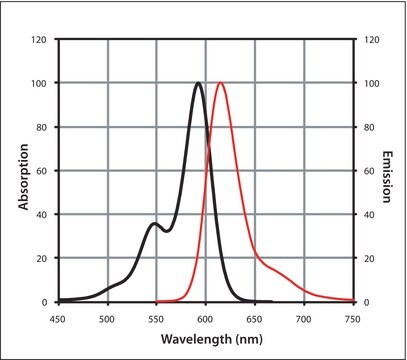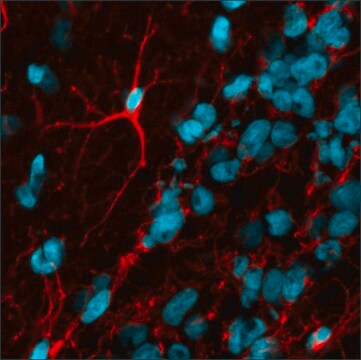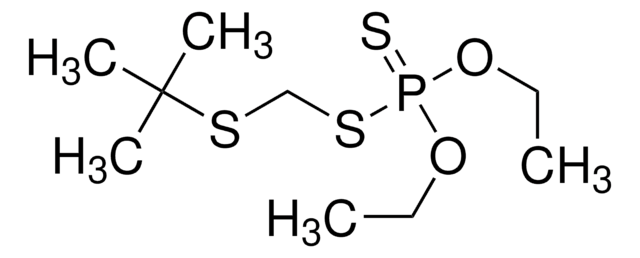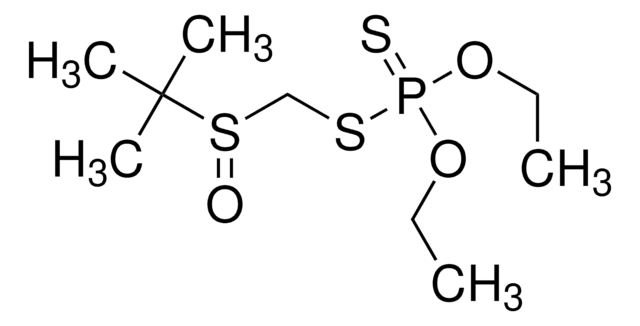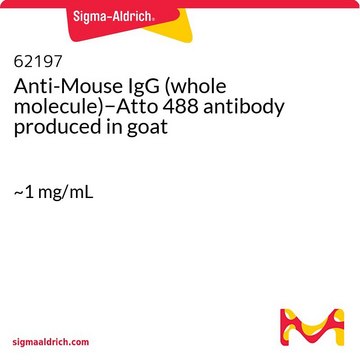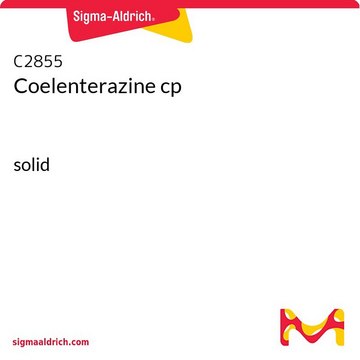36098
Anti-Rabbit IgG F(ab′)2 fragment - Atto 488, whole molecule antibody produced in goat
1 mg/mL protein
Synonym(s):
Atto 488-[F(ab′)2 fragment goat-Anti-rabbit IgG], whole molecule
About This Item
Recommended Products
conjugate
Atto 488 conjugate
Quality Level
antibody form
F(ab′)2 fragment of affinity isolated antibody
antibody product type
secondary antibodies
clone
polyclonal
contains
50% glycerol as stabilizer
species reactivity
rabbit
concentration
1 mg/mL protein
fluorescence
λex 500 nm; λem 522 nm in PBS
shipped in
wet ice
storage temp.
−20°C
target post-translational modification
unmodified
General description
Immunogen
Application
Physical form
Preparation Note
Analysis Note
Legal Information
Disclaimer
Not finding the right product?
Try our Product Selector Tool.
Storage Class Code
10 - Combustible liquids
WGK
WGK 2
Flash Point(F)
Not applicable
Flash Point(C)
Not applicable
Personal Protective Equipment
Regulatory Listings
Regulatory Listings are mainly provided for chemical products. Only limited information can be provided here for non-chemical products. No entry means none of the components are listed. It is the user’s obligation to ensure the safe and legal use of the product.
JAN Code
36098-VAR-F:
36098-1ML-F:
36098-BULK-F:
Choose from one of the most recent versions:
Already Own This Product?
Find documentation for the products that you have recently purchased in the Document Library.
Articles
Immunoblotting (Western blot transfer) is a common technique in modern proteomics research.
Our team of scientists has experience in all areas of research including Life Science, Material Science, Chemical Synthesis, Chromatography, Analytical and many others.
Contact Technical Service

